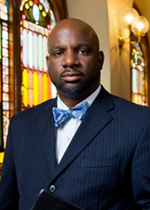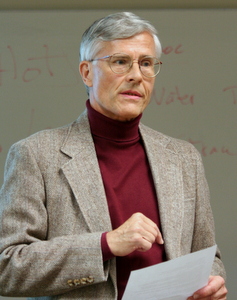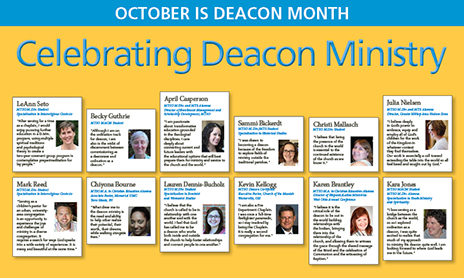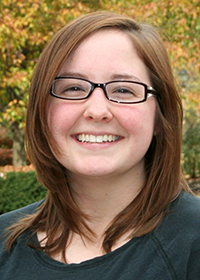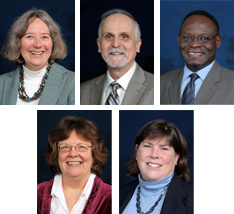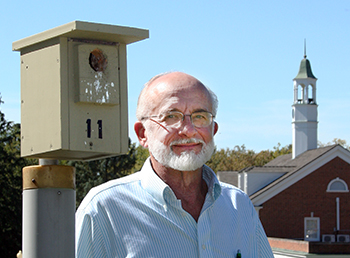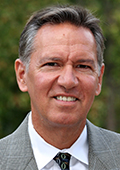From The President
Announcing new elements of a growing commitment
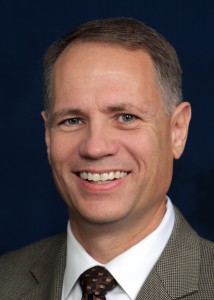
On behalf of the MTSO community, I bring you Advent greetings. It is finals week here on campus, a time with its own kind of expectation and waiting. For many, it may well be characterized more by hope than joy. And yet the larger narrative and deeper meanings of this season are not lost on us in this place. New birth is always in the air here, and it is palpable in the calling and the commitments of those preparing to go forth and serve.
I want to take this opportunity to announce the next step in our strategic partnership with Garrett-Evangelical Theological Seminary. Together, our two seminaries have appointed Dr. Timothy Eberhart to a joint faculty appointment as Assistant Professor of Theology and Ecology. Dr. Eberhart earned his B.A. in Religion from St. Olaf College and an M.Div. and Ph.D. from Vanderbilt University. His Ph.D. focus was in theological ethics, and his dissertation was titled "Rooted and Grounded in Love: Joining God's Feast of Holy Communion in the Global Market Economy." He is an ordained elder in the Dakotas Conference of the United Methodist Church and has served on various boards and committees of the church as well as other community-based organizations.
Dr. Eberhart shares the following: "How we live as members of the creation reveals a great deal about who we believe God to be and what it means to lead a faithful existence. I'm eager to play a role in this collaborative effort to equip leaders with the wisdom of an ecological perspective and the practical knowledge of how to guide communities into the ways that lead to life."
This new appointment strengthens our work with Garrett, and it also augments already strong MTSO resources around theology and ecology. Our existing ecology specializations in the M.Div. and Master of Arts in Practical Theology degrees are attracting students, and this is an important next step. I encourage you to use this link to access a draft document that helps define the important sustainability and ecology/theology dimensions of our academic program. It also suggests the importance of bringing additional aspects of our campus life and community into alignment with this aspect of our academic mission.
In the most recent Story Magazine, I shared with you the creation of a Campus Steward position overseeing buildings and grounds, a position that has been very ably filled by Kyle Cunningham. Now I am very excited to announce the next phase of our work.
Following considerable study and deliberation, but also as a bit of a leap of faith, we are launching a sustainability and land-use initiative that will deepen our commitment to ecological wholeness and give MTSO a very distinctive role in the larger landscape of theological education. As you may know, issues of food production and justice are very much at the center of contemporary ecological and environmental movements. With that in mind, we are starting farm. Yes, a farm.
This morning we began the construction of two large "hoop houses," which are similar to greenhouses. In the spring we will till and plant several acres of an area of campus that has provided little more than grass to be mowed for several decades. Dunn Dining Hall is becoming a farm-to-table operation.
The food we harvest will serve those on campus and beyond. We are already building relationships with a number of organizations that will allow us to connect the organic and locally sourced food movement – often a fairly elite endeavor – with our many other ministry, service and social-justice commitments.
While this move reflects trends on college campuses in Ohio and beyond, it is to my knowledge the first such effort for a U.S. theological school.
We are constantly committed to advancing MTSO in ways that honor those who have shaped it while preparing today's students to serve and lead in the contexts they'll encounter. I firmly believe our growing focus on sustainability and ecological stewardship fits that commitment. As always, I welcome further discussion with you.

